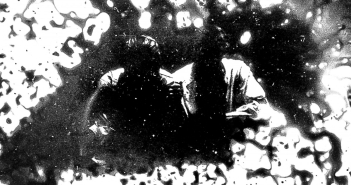At the beginning of the pandemic, the Paraisópolis Favela Residents Association (G10 Favelas) hired a team of doctors, nurses and first responders with ambulances to serve the favela residents, because the SAMU (Mobile Emergency Care Service) could not provide services to the local community.

Pedro Dell’Antonia Gymnasium transformed into a field hospital in Santo André, São Paulo, with a capacity for 110 patients. PH André Lucas

Rescuer, community leader Renata Alves with doctors after an assessment of Covid-19 cases in Paraisópolis. PH André Lucas

Doctors examine a patient. PH André Lucas

Child cries at the sight of a man being taken away in an ambulance with suspected covid. PH André Lucas

A doctor performs a clinical examination on a man who had ben unable to get out of bed. PH André Lucas
The Paraisópolis favela is the second largest community in São Paulo with 75,000 residents, and the daily effort continues to raise awareness among the local population of the dangers of Covid-19. According to Daniel Cavareti, National Coordinator of G10 Favelas:
We divided the community into 50 micro-regions and elected local volunteers. Each takes care of a region. They are residents who help to distribute donations without agglomerations and who call the ambulance, in case anyone needs it.

Daniel Almeida sanitizing alleys in the Vietnã favela. PH André Lucas

Daniel is president of the “Amigos da Molecada” association of the Vietnã favela, in São Paulo. He uses equipment to clean the streets around the community. PH André Lucas

Children play in the alleys of the Vietnã favela as Daniel sanitizes. PH André Lucas
In São Paulo, the Butantan Institute implemented mass testing in favelas which began in the Favela São Remo, the Western-most and most vulnerable part of the city.
Some 1,600 tests were carried out in June 2020, once of which diagnosed Palmira Costa, aged sixty-six, with Covid-19. She lives with her eight-year-old granddaughter Fernanda.

Palmira with her 8-year-old granddaughter Fernanda. PH André Lucas
‘My mother takes oxygen at home already due to respiratory problems, so I was always very concerned to avoid this disease affecting her. She was very fearful when she tested positive, but at least she did not develop the symptoms. She is very afraid, you know?’ reports Fernanda, daughter of Palmira.
The average number of daily deaths in Brazil (a country with a population over 200 million) currently exceeds 3,000 per day, a macabre number that may be understating the real figure. The official death toll from Covid-19 in Brazil stands at 313,866, second in the world only to the United States.

Nurse Marcelo Silva, in attendance at the temporary hospital in Santo André in São Paulo. PH André Lucas
Thirty-five-year-old nurse Marcelo works at the Santo André field hospital. He finds that the affection and support there creates a lighter atmosphere for patients caught in this moment of uncertainty.
The work is exhausting, but apart from sad stories of death, Marcelo points to the love on display where multiple members of the same family are hospitalized at the same time.
It is increasingly common for there to be severe cases among patients as young as thirty, but with the help of doctors, physiotherapists, and nurses most recover.

Doctors assess the patient’s pulmonary situation. PH André Lucas
All cases that need tomography and diagnosed with Covid-19 in one of the 7 UPA (Emergency Care Unit) or one of the 35 UBS (Basic Health Unit) in the municipality are referred by ambulances to the Hospital at the Gymnasium Pedro Dell’Antonia, which was set up on an emergency basis due to a lack of ICUs in the city.
paket wisata banyuwangi
minyak lintah
nusa penida tour
bromo ijen tour
loker situbondo
slot online
Fortunately, the hospital created especially to attend to cases of Covid-19 in Santo André does not lack for basic health tools such as PPE and respirators. But working conditions have become more challenging as the government has taken almost no measures to reduce the spread.
The patients at the Gymnasium Pedro Dell’Antonia are the most serious cases, those who are not intubated are using non-inhalant masks and nasal catheters.

Inpatient with oxygen assistance. PH André Lucas

Doctors and nurses in the makeshift corridors of the Hospital de Campanha in Santo André, Sao Paulo. PH André Lucas



